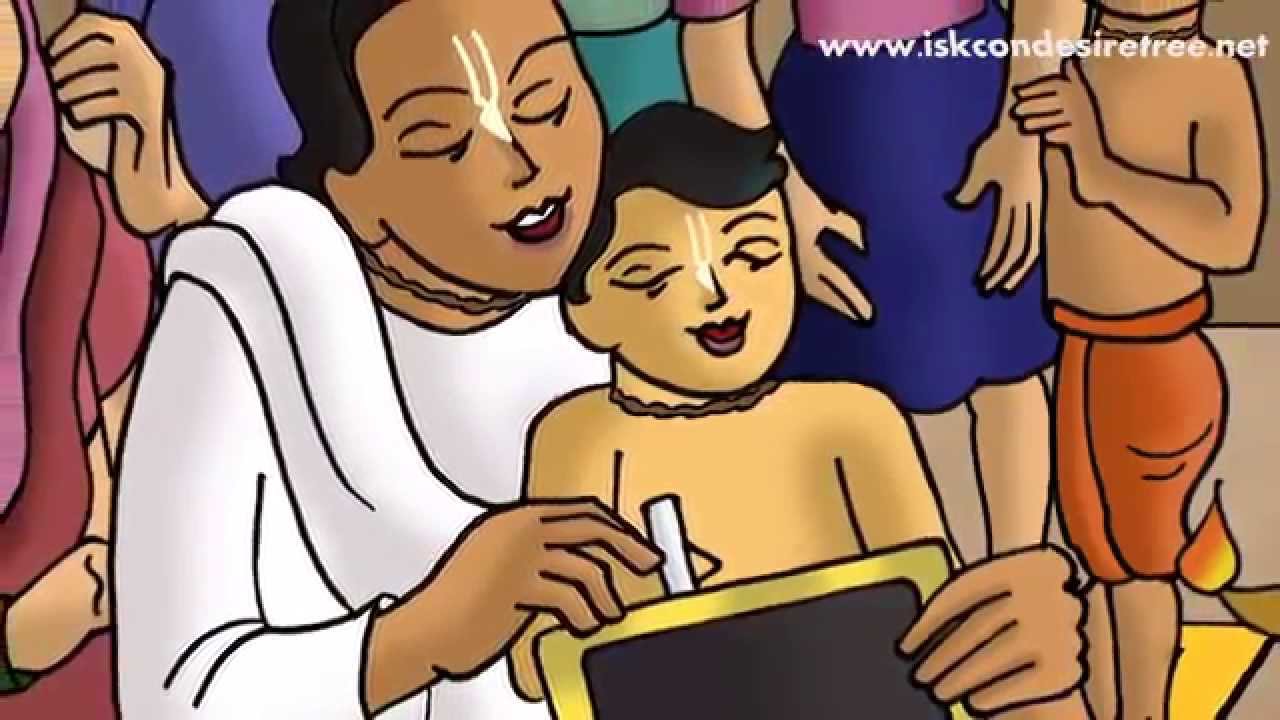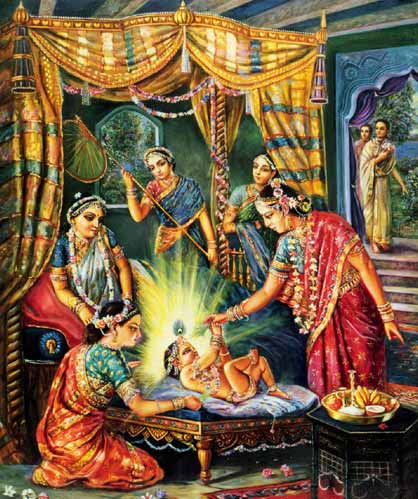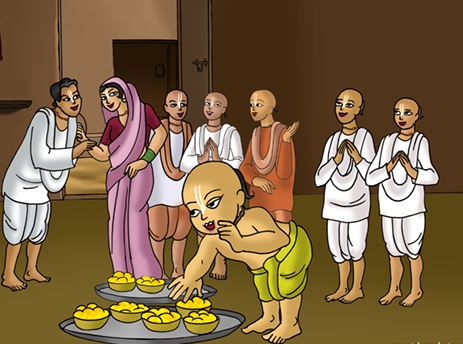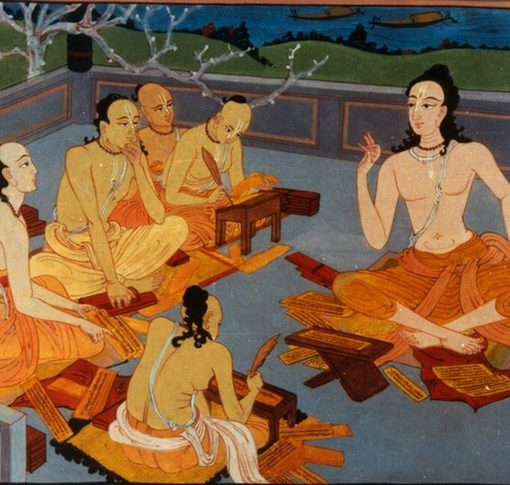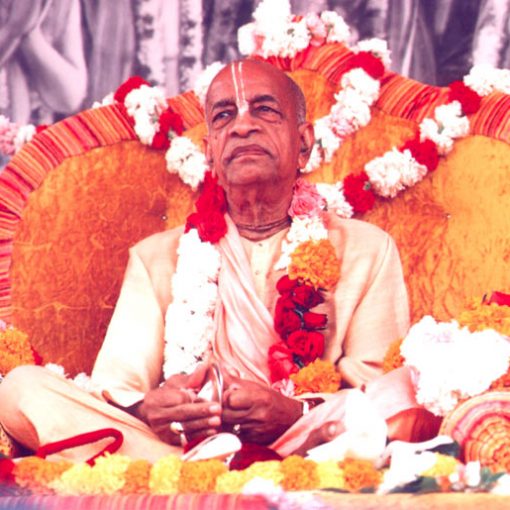When Nimāi was six months old, it was time for His anna-prāśana ceremony—taking the first grains of sweet rice. His parents hadn’t done the nāma-karaṇa, or name-giving ceremony, which is usually done one or two months after birth, so they decided to have the nāma-karaṇa and anna-prāśana on the same day.
They invited Nīlāmbara Cakravartī to come and say which first letter would make an auspicious name for the child. He said, “Viśvambhara is a good name—this child will take the load of the universe. But the ladies said, “He was born under a neem tree so we will call him Nimāi.”
The men wanted Viśvambhara, the women wanted Nimāi, so they asked him to please find a solution; even five-hundred years ago there was some difference of opinion between men and women. So Nīlāmbara Cakravartī said, “Let His common name be Nimāi and His official name for spiritual activity will be Viśvambhara.” Thus he satisfied both of them.
Usually at this ceremony they put books and money in two separate directions, to see which the child is more attracted to, but in this case, Nīlāmbara Cakravartī gave a variety of books. In addition he put a pen in case the child wants to scribe, to see what He was in a previous life. He also put a selection of money—copper coin, silver coin, gold coin— to see if He did go for the money, then was He a big time spender or a small time spender. So there was a whole line of different things to see which one Lord Caitanya would select. Among all these items, He went straight for the books, and out of all the books He took the Śrīmad-Bhāgavatam, and started to hug it. The paṇḍitas thought, “Yes, He will be a paṇḍita, He took the book.” But because He took the Śrīmad-Bhāgavatam, the Vaiṣṇavas thought, “Hah, He will be a devotee of the Lord.” Any event with Lord Caitanya was a special occasion.
Gauranga – The golden incarnation of divine love- HH Jayapataka Swami

